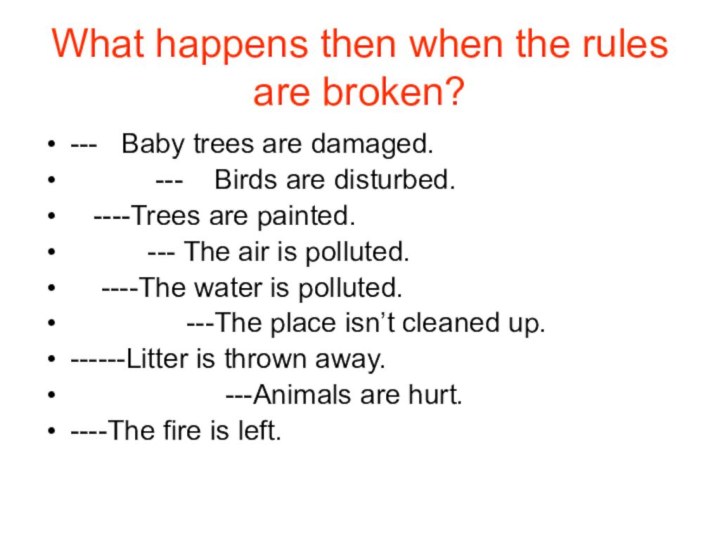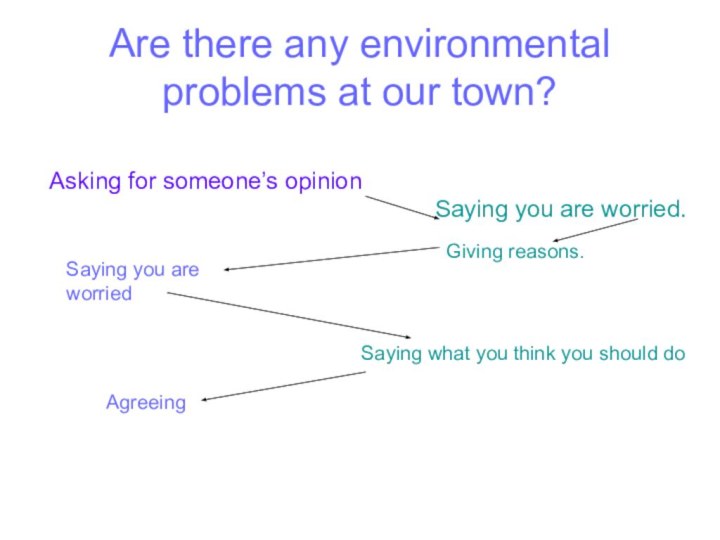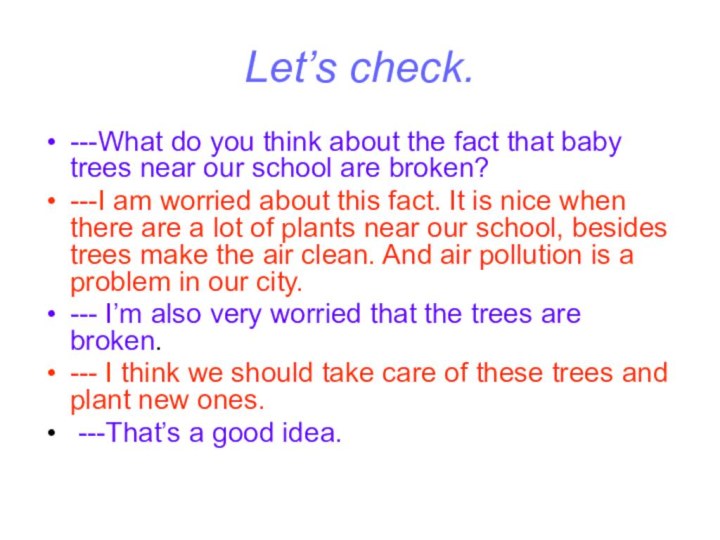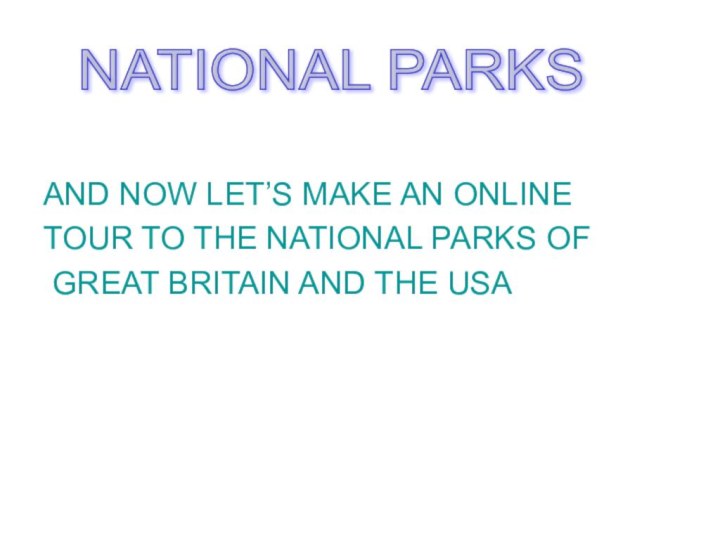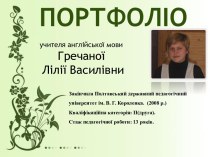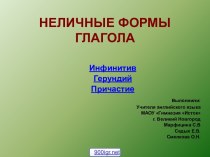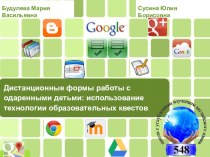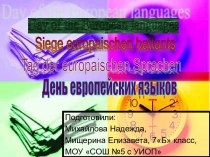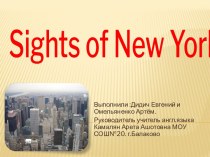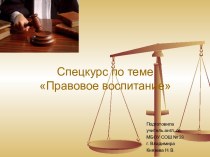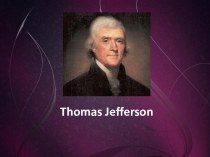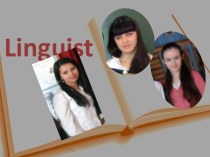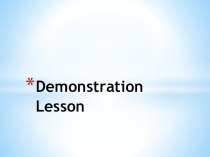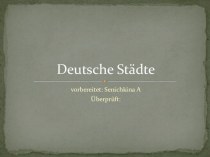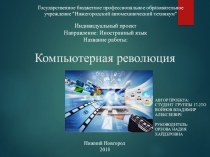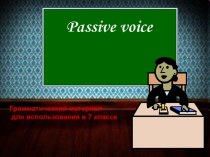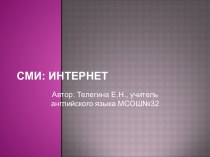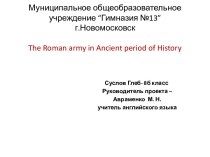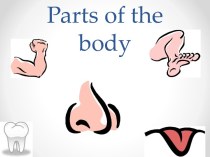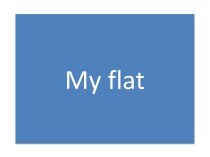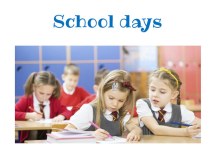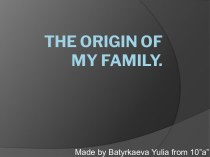Слайд 2
SOS! OUR PLANET IS IN DANGER!
Социокультурный аспект
– знакомство учащихся с экологическими организациями Британии, их деятельностью
по охране природы, экологическим образованием.
Цели и задачи:
Учебный аспект – совершенствование навыков монологической и диалогической речи, совершенствование навыков аудирования незнакомого текста и текста с опорой на видеозапись с извлечением основной информации, контроль грамматических навыков употребления в речи страдательного залога в настоящем времени.
Развивающий аспект – развитие объема памяти, развитие способности к логическому изложению содержания.
Воспитательный аспект – развитие обеспокоенности экологической ситуацией вокруг, формирование ответственного отношения к природе, воспитание правильного экологического поведения.
Слайд 3
II. Фонетическая зарядка.
[t]- [d]- pollute, polluted, paper, plastic,
damage, damaged
[w]- we, weather, water, we pollute water, the
water is polluted
[r]- reuse, is reused, reduce, is reduced, recycle, is recycled
[0]-think, I think, I don’t think
Слайд 4
What are people worried about?
p1- The
forests are cut down.
p2-Many trees are cut down
for building.
p3-Most of the countryside is spoiled.
p4- A lot of rivers and lakes are polluted.
p5- Sea animals are hurt.
Слайд 5
Ecological problems
The word “ecology” came from Greek
word which means “home”.
Water
damaged
Air destroyed
Forests is disturbed
Animals are killed
Wildlife polluted
Litter spoiled
Health cut down
hurt
Слайд 6
What happens then when the rules are broken?
---
Baby trees are damaged.
--- Birds are disturbed.
----Trees are painted.
--- The air is polluted.
----The water is polluted.
---The place isn’t cleaned up.
------Litter is thrown away.
---Animals are hurt.
----The fire is left.
Слайд 7
What are the results of our influence to
on the environment?
(Make up one sentence using
passive voice.)
We leave a fire. We destroy the forest.
When the fire is left, the forest is destroyed.
We pollute the air. We change the climate.
We throw away plastic bottles. We damage nature.
We leave litter in the forest. We hurt animals.
We don’t recycle paper. We cut down trees.
We break trees. We disturb birds.
We throw litter in the river. We cause water pollution.
We leave glass bottles in the forest. We hurt animals and people.
Слайд 8
Are the statements true or false?
John lives in
Oxford.
There are so many cars in the streets.
The air
is clean.
They have a ‘ no car’ day.
He understands how important the problem is.
Слайд 9
Are there any environmental problems at our town?
Asking for someone’s opinion
Saying you are worried.
Giving reasons.
Saying you
are worried
Saying what you think you should do
Agreeing
Слайд 10
Let’s check.
---What do you think about the fact
that baby trees near our school are broken?
---I am
worried about this fact. It is nice when there are a lot of plants near our school, besides trees make the air clean. And air pollution is a problem in our city.
--- I’m also very worried that the trees are broken.
--- I think we should take care of these trees and plant new ones.
---That’s a good idea.
Слайд 11
Well, have you got any suggestions how to
take care of environment ?
S1—I think there are
a lot of ways we can help the Earth. One way is to remember 3 R’s.
S2. ---I think it is important to leave wild flowers for others to enjoy.
S3---It is nice to be a friend to fish, not to throw garbage into their home.
S4---More than that we must plant trees to make homes for birds and small animals.
S5---So, we must use our head. Smart people recycle paper, cans and glass.
S6---What’s more, we must leave the place clean
Слайд 12
It is everybody’s business…
An outstanding English writer
John Galsworthy said: ”If you don’t think about the
future you will not have it.”
Let’s think about the future. Let’s keep our planet tidy and make it better place to live in. Let’s save the Earth for ourselves and for the next generations.
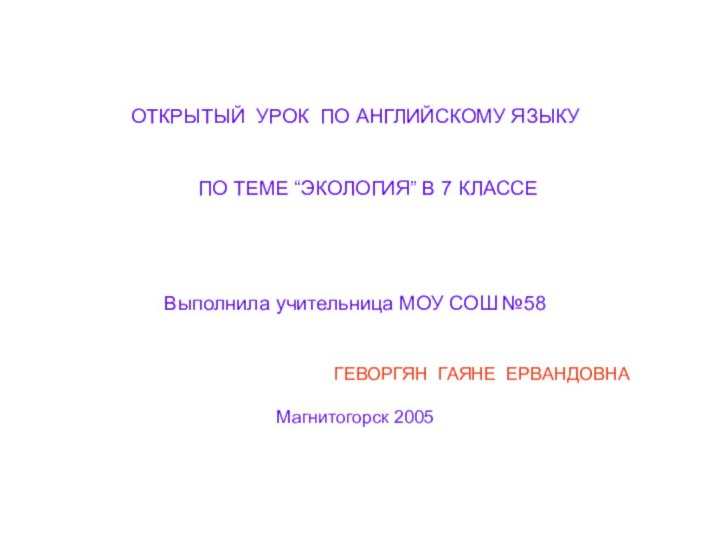
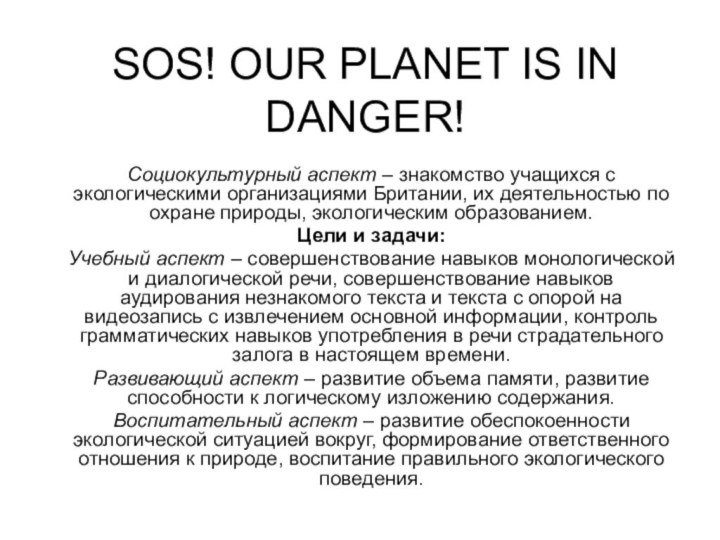
![SOS! Our planet is in danger! II. Фонетическая зарядка.[t]- [d]- pollute, polluted, paper, plastic, damage, damaged[w]- we, weather,](/img/tmb/7/602370/7a4450fe60f28d0cc27a14cf68740d60-720x.jpg)


